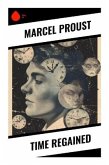Swann's Way, the first volume of Marcel Proust's monumental work, In Search of Lost Time, intricately weaves together themes of memory, desire, and the passage of time. Written in a lush, impressionistic style, Proust employs long, flowing sentences that mirror the complexities of human thought and experience. The novel introduces readers to Charles Swann, a wealthy man caught in a tempest of obsessive love for Odette de Crécy, while simultaneously exploring the nature of art and the profound impact of recollections that define our identities. Set against the backdrop of late 19th-early 20th century French society, this work encapsulates the zeitgeist of its era, emphasizing the intricacies of social relationships and the fragility of happiness. Marcel Proust, a member of the French aristocracy, was profoundly influenced by the nuances of his surroundings, his own experiences with love, and the loss of his mother. Proust's extensive personal reflections, combined with a keen observation of social hierarchies, inform this narrative, revealing his deep psychological insight and ability to illustrate life's subtleties. His own struggles with health and social acceptance further enrich the narrative, as they lend authenticity to his exploration of longing and memory. Swann's Way is a must-read for anyone interested in the depths of human emotion and memory. Proust's exploration of time and identity invites readers to reflect on their own experiences, making it a timeless literary journey. Its exquisite prose and profound themes will resonate with both literary enthusiasts and casual readers alike, offering insights that endure well beyond the pages of the book.
Bitte wählen Sie Ihr Anliegen aus.
Rechnungen
Retourenschein anfordern
Bestellstatus
Storno








